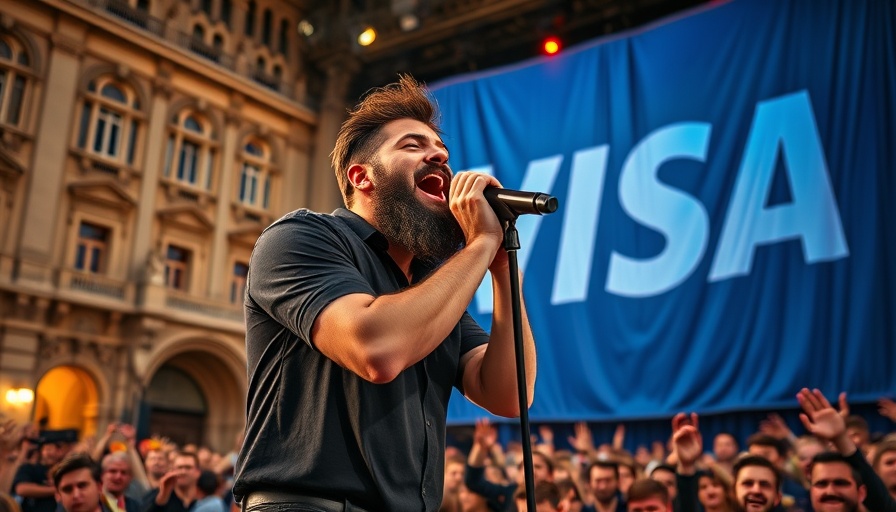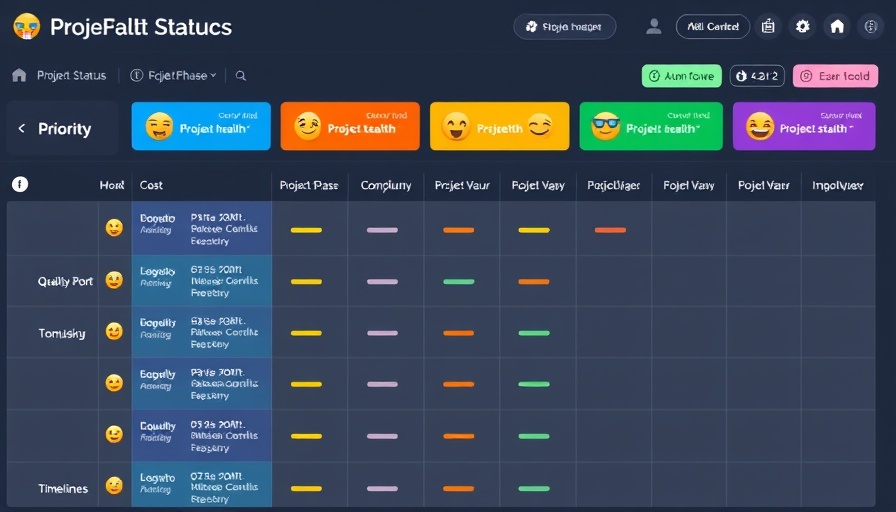
A Revolutionary Shift in Brand Engagement: The Campaign that Shook the Industry
Visa has certainly made waves with its recent campaign, 'Live at Le Louvre'. This isn’t just an event; it's a showcase of how innovative strategies can intersect with cultural milestones to generate buzz and enhance brand visibility. With the world’s gaze turned toward Paris for the upcoming 2024 Olympic and Paralympic Games, Visa transformed a historic institution into a vibrant concert venue, marking their entry into the realm of experiential marketing in a way that redefines traditional branding.
Breaking Barriers for Cultural Impact
The cornerstone of the success of 'Live at Le Louvre' was its location—the iconic Musée du Louvre. Hosting live concerts at such an esteemed venue was deemed impossible, a challenge Visa embraced wholeheartedly. Jenny Stahl Cobler, VP of Global Experiential and Entertainment Marketing at Visa, humorously recalls writing a love letter to the Louvre's president—demonstrating the lengths they're willing to go in order to secure their brand’s legacy. This courage in overcoming skepticism showcases a critical lesson: sometimes, the biggest risks lead to the most significant rewards.
The Importance of Genuine Connections
One key factor that makes this campaign so intriguing is Visa’s ability to connect with its audience on multiple fronts. By bringing in a diverse lineup of artists like Post Malone and featuring content on social media and platforms like Roblox, Visa has not only captivated live audiences but also engaged Gen Z digitally. This multi-channel approach to customer engagement speaks volumes about the future of branding—one that prioritizes emotional resonance over mere visibility.
Crafting a Meaningful Experience
This campaign was not simply about music; it was about creating a cultural phenomenon. The fusion of art, technology, and music has positioned Visa as a forward-thinking brand that understands the shifts in consumer behavior. The event served as a platform for Visa to launch its new music strategy, aiming to cultivate a community around shared experiences that blur the lines between art and commerce.
Future Trends in Marketing: What Businesses Can Learn
For businesses looking to scale and innovate, Visa's approach offers actionable insights into how to craft compelling narratives that resonate with audiences. Demand generation and lead generation strategies should focus on creating memorable experiences rather than just selling products. By nurturing genuine relationships with customers through unique offerings, brands stand to enhance their visibility and create lasting connections. As more companies venture into unique experiential marketing, differentiating through creativity and cultural relevance will be essential for success.
A Call to Creativity in Branding
'Live at Le Louvre' teaches us that taking bold steps can yield extraordinary results. Visa's campaign serves as a blueprint for businesses aiming to innovate in their branding efforts. By thinking outside the box and merging creativity with cultural significance, brands can not only elevate their messaging but also engage consumers on a deeper level. As you consider your brand’s next steps, think about how you can create experiences that speak to the heart of your audience. Will your marketing strategy include memorable experiences too?
In conclusion, the success of Visa's 'Live at Le Louvre' is a reminder that effective marketing strategies hinge on creating genuine connections, challenging the status quo, and weaving cultural relevancy into the fabric of branding. To harness this potential, business leaders must carefully explore new avenues for customer engagement through innovative demand generation strategies that foster loyalty and growth.
 Add Row
Add Row  Add
Add 



Write A Comment